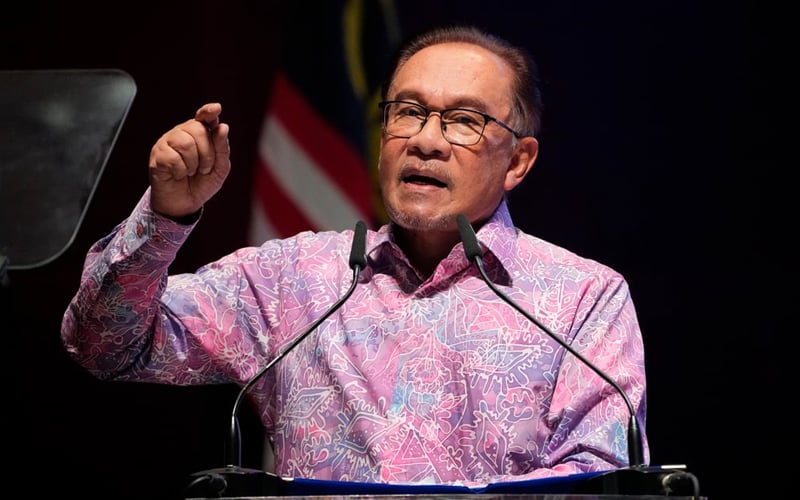
From Liew Chin Tong
A successful political order in Malaysian history requires two prerequisites, ability to win votes across ethnic lines and to gain support of the Sabah and Sarawak parties and people.
In this new political order, how do we measure the achievements of Prime Minister Anwar Ibrahim and the unity government, especially when both have faced many trials and tribulations over the past one year?
First, on December 19, 2022, Anwar won a confidence vote in Parliament.
Second, the tussle between two groups in Umno, one that supported the unity government and the other that wanted Muhyiddin Yassin as prime minister. The Umno party election in March saw the mainstream group which supported Anwar winning a landslide victory.
Third, the six-state elections saw the “peak” of Perikatan Nasional. It could only offer voters the same things as it did in GE15, namely Muhyiddin to be prime minister and that PN would form a Malay government. It also riled up racial issues to portray itself as a champion for the Malays.
After the state elections, the idea that PN could pull off another Sheraton coup was thrown out of the window. Also there is a huge reservoir of middle ground voters among the Malays and non-Malays alike who reject the dangerous politics of stoking the fire of racism.
Fourth, the unity government won the crucial by-elections of Pulai and Simpang Jeram in Johor, and Pelangai in Pahang, proving that PN’s influence is only limited to the four northern Peninsula states and constituencies with a very high proportion of Malay voters.
Fifth, during the state elections and also at the Hari Malaysia celebration in Kuching, Sarawak Premier Abang Johari Openg categorically stated that Gabungan Parti Sarawak would support Anwar to lead the unity government until completion of the parliamentary term.
I predicted in August that there would be a possibility of Bersatu falling into oblivion while PAS excels in Perlis, Kedah, Terengganu and Kelantan, and that at some point PAS would find it unnecessary to have Bersatu as an ally. Also, that PAS is likely to see the transition of power from Abdul Hadi Awang to a younger leader soon.
Today, most Malaysians agree that Anwar’s unity government will stay until the end of the term, and Muhyiddin’s hope of becoming prime minister for the second time is getting dimmer.
It is also evident that Bersatu is rapidly self-imploding, to the extent that PAS had to appoint Dr Mahathir Mohamad as the advisor to the four states it runs. One wonders why Mahathir, and not Muhyiddin.
In short, after many battles, most of the stumbling blocks for the new political order have been cleared off. Anwar and the unity government fulfilled both of the criteria for a lasting political order, being able to win across ethnic lines as well as to secure support from Sabah and Sarawak parties.
The challenge now is whether the unity government is able to launch a second economic take-off to serve as the cornerstone for this new political order to rebuild Malaysia.
Liew Chin Tong is deputy secretary-general of DAP and an FMT reader. This article is an extract from a posting on his personal Facebook page.
The views expressed are those of the writer and do not necessarily reflect those of FMT.









 English (US) ·
English (US) ·